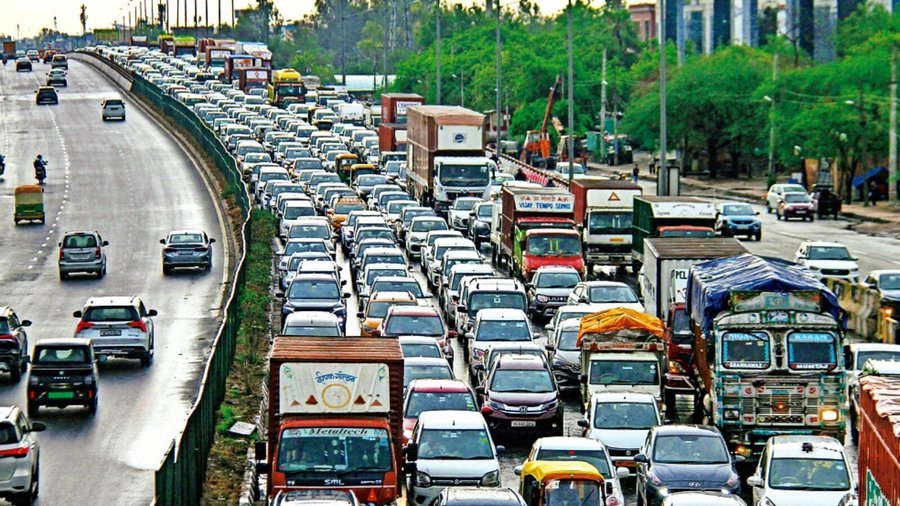News List
Delhi Bans Non-BS-VI Commercial Vehicles from November 1 to Combat Pollution

In a major move to tackle worsening air pollution, the Delhi government will prohibit non-BS-VI compliant commercial goods vehicles (CGVs) registered outside the capital from entering the city starting November 1, 2025. The decision, directed by the Commission for Air Quality Management (CAQM), is part of a broader strategy to curb vehicular emissions that contribute significantly to Delhi’s toxic winter smog.
The Delhi Transport Department announced that only BS-VI compliant diesel vehicles and those running on cleaner fuels such as CNG, LNG, or electricity will be permitted entry. Vehicles registered within Delhi will remain exempt from this restriction. However, older, high-emission vehicles from other states will no longer be allowed on the capital’s roads.
Authorities have also provided a transition window for BS-IV compliant commercial vehicles from outside Delhi, allowing them entry until October 31, 2026. This one-year grace period aims to give transporters sufficient time to upgrade or replace their fleets with cleaner alternatives.
The move aligns with the Graded Response Action Plan (GRAP) — a set of measures enforced when air quality levels deteriorate. Under GRAP, specific actions such as restrictions on construction, vehicle movement, and industrial operations are implemented based on pollution severity. Officials said the ban is a crucial addition to these efforts and will help control vehicular pollution during peak smog season.
The decision was formally approved during CAQM’s meeting held on October 17, 2025, where members reviewed the capital’s air quality trends and identified heavy-duty diesel trucks as a major source of emissions. By restricting entry to only BS-VI compliant or cleaner-fuel vehicles, the government aims to reduce the concentration of particulate matter (PM 2.5 and PM 10) that spikes each winter.
Experts believe this initiative will not only benefit Delhi’s residents but also encourage transport operators across northern India to adopt sustainable mobility solutions. The government expects the new rule to pave the way for greater adoption of electric and CNG-powered goods carriers, furthering India’s broader goals of reducing carbon emissions and improving public health.
With the onset of winter just weeks away, Delhi’s air quality typically dips to hazardous levels due to a mix of stubble burning, industrial emissions, and vehicular pollution. The upcoming ban is expected to serve as a preventive measure, ensuring cleaner air for the city’s 30 million residents and supporting the government’s long-term vision of a pollution-free, sustainable Delhi.
